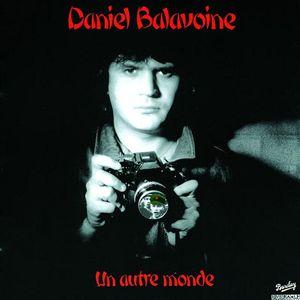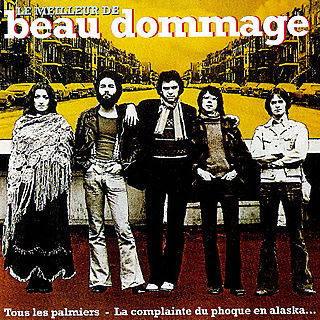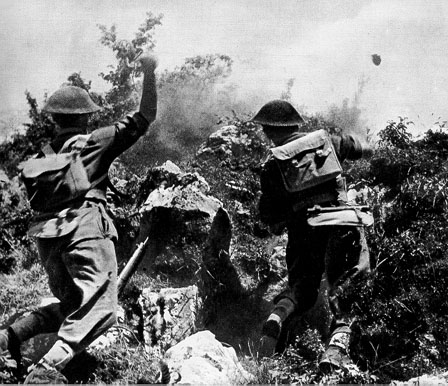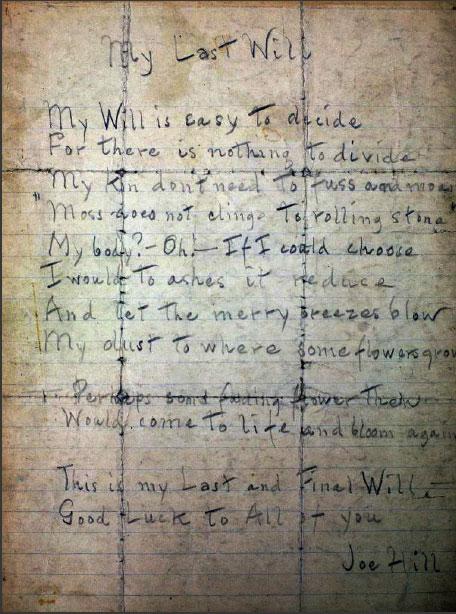Veteran of the Psychic Wars

Album: "Fire of Unknown Origin" (1981)
by Eric Bloom and British author Michael Moorcock (creator of Elric of Melniboné).
Covered by Metallica
[The song] may also be a dual statement on the media manipulations and war itself. Obviously, psychic wars going on here at home are just as important as the real war in attempting to convince the people that war is useful and going well. Weariness of a war going on far too long, along with an assault on personal liberty and privacy, is the message of lines such as "But the war's still going on dear / And there's no end that I know / And I can't say if we're ever... / I can't say if we're ever gonna to be free," and "It's time we had a break from it / It's time we had some leave."
from Metallica - The Anti-War, Anti-State, Pro-Liberty Metal Band?
by Eric Bloom and British author Michael Moorcock (creator of Elric of Melniboné).
Covered by Metallica
[The song] may also be a dual statement on the media manipulations and war itself. Obviously, psychic wars going on here at home are just as important as the real war in attempting to convince the people that war is useful and going well. Weariness of a war going on far too long, along with an assault on personal liberty and privacy, is the message of lines such as "But the war's still going on dear / And there's no end that I know / And I can't say if we're ever... / I can't say if we're ever gonna to be free," and "It's time we had a break from it / It's time we had some leave."
from Metallica - The Anti-War, Anti-State, Pro-Liberty Metal Band?
Micheal Moorcock did cowrite this song (along with Black Blade and the Great Sun Jester).
He says the song is an allusion to a soldier's post traumatic stress syndrome. They keep living the horror in their heads.
Read more at songmeanings
He says the song is an allusion to a soldier's post traumatic stress syndrome. They keep living the horror in their heads.
Read more at songmeanings
You see me now a veteran of a thousand psychic wars
(Continues)
(Continues)
2012/11/7 - 22:32
Make Rock Not War

(Bob Halligan, Jr.)
Album: Club Ninja (1985)
Album: Club Ninja (1985)
Moments of pleasure, in a world of pain.
(Continues)
(Continues)
2012/11/7 - 22:14
La vie ne m'apprend rien

Album: Un autre monde (1980)
reprise par Julie Pietri, Liane Foly et Florent Pagny
reprise par Julie Pietri, Liane Foly et Florent Pagny
Qui ose dire qu'il peut m'apprendre les sentiments
(Continues)
(Continues)
2012/11/7 - 21:52
La Complainte Du Phoque En Alaska

Chanson québécoise de langue française – La Complainte Du Phoque En Alaska - Beau Dommage – 1974
Paroles et musique de Michel Rivard
Ah, Lucien l'âne mon ami, voilà que les phoques s'en mêlent et se mettent à la complainte de l'émigration. M'est avis qu'ils ont ben raison...
Mais enfin, Marco Valdo M.I., mon ami, c'est purement symbolique que ce soit un phoque ; c’eût pu aussi bien être un ours blanc ou une girafe... Enfin, une girafe au Québec, ce serait vraiment étonnant... Mais sait-on jamais ? J'ai bien rencontré des gens qui voulaient aller cueillir des pommes en Ontario en décembre.
Je les connais aussi, mais ils se sont ravisés. Ils vont au Brésil ; au nord, certes, mais de un, on est en plein été ; de deux, au Brésil, plus on est au nord, plus on se rapproche de l'Équateur... Et même que de trois, au nord du Brésil, on ne risque pas de rencontrer des phoques... Même si on a... (Continues)
Paroles et musique de Michel Rivard
Ah, Lucien l'âne mon ami, voilà que les phoques s'en mêlent et se mettent à la complainte de l'émigration. M'est avis qu'ils ont ben raison...
Mais enfin, Marco Valdo M.I., mon ami, c'est purement symbolique que ce soit un phoque ; c’eût pu aussi bien être un ours blanc ou une girafe... Enfin, une girafe au Québec, ce serait vraiment étonnant... Mais sait-on jamais ? J'ai bien rencontré des gens qui voulaient aller cueillir des pommes en Ontario en décembre.
Je les connais aussi, mais ils se sont ravisés. Ils vont au Brésil ; au nord, certes, mais de un, on est en plein été ; de deux, au Brésil, plus on est au nord, plus on se rapproche de l'Équateur... Et même que de trois, au nord du Brésil, on ne risque pas de rencontrer des phoques... Même si on a... (Continues)
Cré-moé, cré-moé pas, quéqu' part en Alaska
(Continues)
(Continues)
Contributed by Marco Valdo M.I. 2012/11/7 - 15:31
Song Itineraries:
The War of Labour: Emigration, Immigration, Exploitation, Slavery
Canzone del capitano Gert

Una correzione doverosa: Q non parla affatto della Guerra dei Trent'anni, ma della Rivoluzione Protestante al suo avvio, oltre un secolo prima del conflitto che sconvolse l'Europa.
White Lord 2012/11/7 - 12:58
Bruce Springsteen: Tenth Avenue Freeze-Out

Credo che non occorra essere fan sfegatati del Boss per comprendere che è una delle favole più belle della storia del rock.
Ciao Big Man!
Ciao Big Man!
Alberto 2012/11/7 - 11:19
Czerwone maki na Monte Cassino
Traduzione italiana da Studi Cassinati, da cui traggo anche la seguente nota:

In effetti, come già commentava Beata, non si tratta di un canto partigiano ma di un canto di guerra del corpo d’armata polacco che nel maggio del 1944 piegò la forte resistenza tedesca a Montecassino al prezzo del quasi totale annientamento…
“… il testo richiama due importanti battaglie del passato: Samosierra, in Spagna, quando nel 1808 le truppe polacche comandate da Napoleone furono massacrate, ma riuscirono comunque a conquistare l’obiettivo, e Rokitno, teatro dei violenti attacchi da parte dei nazisti durante la conquista della Polonia nel 1939.
Della canzone esiste anche una versione rock, musicata dal gruppo Twierdza, in cui però non viene cantato il refrain, ma ben più famosa è la versione cantata da Adam Aston, interprete polacco anch’egli [come Feliks Konarski e Alfred Schütz, autori di “Czerwone maki na Monte Cassino”, ndr] arruolatosi nella guerra in Italia. Ad impreziosire ancora di più il brano è la splendida interpretazione del coro dell’armata russa…”
Della canzone esiste anche una versione rock, musicata dal gruppo Twierdza, in cui però non viene cantato il refrain, ma ben più famosa è la versione cantata da Adam Aston, interprete polacco anch’egli [come Feliks Konarski e Alfred Schütz, autori di “Czerwone maki na Monte Cassino”, ndr] arruolatosi nella guerra in Italia. Ad impreziosire ancora di più il brano è la splendida interpretazione del coro dell’armata russa…”
In effetti, come già commentava Beata, non si tratta di un canto partigiano ma di un canto di guerra del corpo d’armata polacco che nel maggio del 1944 piegò la forte resistenza tedesca a Montecassino al prezzo del quasi totale annientamento…
PAPAVERI ROSSI A MONTECASSINO
(Continues)
(Continues)
Contributed by Dead End 2012/11/7 - 10:41
Point de vue

Chanson française - Point de vue - Jean Arnulf - 1968
Mon ami Lucien l'âne, il y avait tellement longtemps que je n'avais pas entendu cette chanson et la voix de Jean Arnulf... On dirait un miracle du ciel et Dieu sait que je n'y crois pas : ni aux miracles, ni au ciel, ni à Dieu... mais quand même, c'est un miracle du ciel. Elle n'était pas sortie de ma mémoire, elle y sommeillait comme une source qui attend de se ressourcer et d'un coup, splendeur... Moi, je dis que la chanson n'a pas le même goût selon comment on la regarde... Jean Arnulf, tu imagines... Et le voir en plus... Un effet similaire à celui que me fit, il y a quelque temps Giani Esposito quand je l'ai retrouvé lui aussi au détour d'une chanson... Tous deux (et d'autres encore, comme Tachan) enterrés sous des tonnes de détritus médiatiques qui étaient venus polluer les oreilles, y compris tes oreilles d'âne pourtant si grandes... (Continues)
Mon ami Lucien l'âne, il y avait tellement longtemps que je n'avais pas entendu cette chanson et la voix de Jean Arnulf... On dirait un miracle du ciel et Dieu sait que je n'y crois pas : ni aux miracles, ni au ciel, ni à Dieu... mais quand même, c'est un miracle du ciel. Elle n'était pas sortie de ma mémoire, elle y sommeillait comme une source qui attend de se ressourcer et d'un coup, splendeur... Moi, je dis que la chanson n'a pas le même goût selon comment on la regarde... Jean Arnulf, tu imagines... Et le voir en plus... Un effet similaire à celui que me fit, il y a quelque temps Giani Esposito quand je l'ai retrouvé lui aussi au détour d'une chanson... Tous deux (et d'autres encore, comme Tachan) enterrés sous des tonnes de détritus médiatiques qui étaient venus polluer les oreilles, y compris tes oreilles d'âne pourtant si grandes... (Continues)
Le soleil brille pour tout le monde
(Continues)
(Continues)
Contributed by Marco Valdo M.I. 2012/11/6 - 16:53
×
![]()


















Στίχοι: Κωνσταντίνος Καβάφης (1898; δημ. 1904)
Μουσική: Γιάννης Γλέζος
Πρώτη εκτἐλεση: Γιάννης Γλέζος
'Αλμπουμ: Περιμένοντας τους βαρβάρους
Poesia di Konstandinos Kavafis (1898; pubb. 1904)
Musica di Yannis Glezos
Primo interprete: Yannis Glezos
Album: Περιμένοντας τους βαρβάρους
A Poem by Constantine Cavafy (1898: pub'd 1904)
Music by Yannis Glezos
First performed by Yannis Glezos
Album: Περιμένοντας τους βαρβάρους
L'attesa è terminata
di Riccardo Venturi
Dal 1904, una famosa poesia di Konstandinos Kavafis ci ammorba la vita. Si chiama Περιμένοντας τους βαρβάρους in lingua originale, e qui la trovate in italiano nella classica traduzione di un defunto e valente ellenista, Filippo Maria Pontani, che però, nella pagina linkata, è stato messo in bicicletta e trasformato in "Pantani". Nulla di cui indignarsi; da che mondo è mondo, i ciclisti... (Continues)